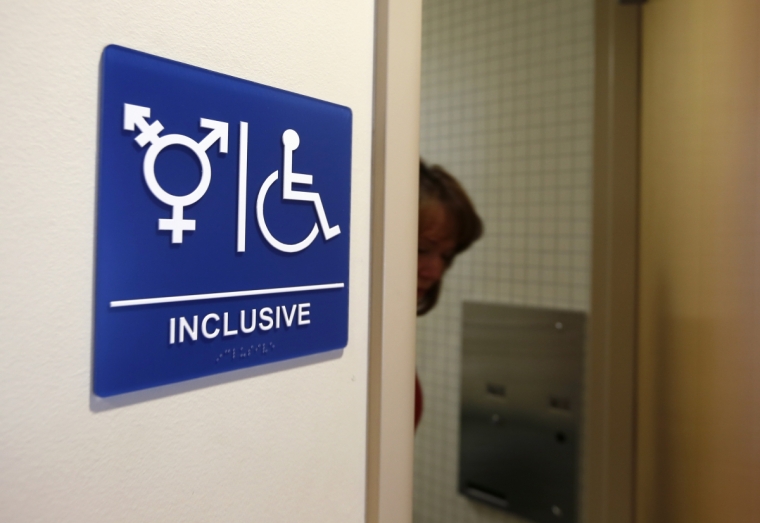Alaska school district policies embrace transgender students & employees

ANCHORAGE, Alaska (Christian Examiner) – A controversial new "don't-ask" policy towards which paves the way for transgender and gender nonconforming students and employees to choose facilities based on preference and not on gender has been published by the Anchorage School District (ASD).
The administrative guidelines provide that students may use sex-specific locations like restrooms or locker rooms according to their preference and that they may be addressed by the name or pronoun of their choice.
The guidelines are so broad that transgender students do not have to provide a reason for their request to use a different sex-specific facility.
"Any transgender or gender nonconforming student/ employee who is uncomfortable using a shared restroom or locker room regardless of the reason; [sic] shall, upon request, be provided with a safe and non-stigmatizing alternative," the policy reads. "This may include, for example, addition of a privacy partition or curtain, use of a nearby private restroom or office, or a separate changing schedule."
The guidelines state: "However, staff should not require a transgender or gender nonconforming student/employee to use a separate, nonintegrated space unless requested by the individual student/employee."
One interpretation of this statement implies that a male student who identifies as female may ask to use a women's restroom and that his female classmates or their parents may not object.
ASD executive director Margo Bellamy, who ensures Title IX and EEO compliance, told Alaska Dispatch News, "It's the same as what we do to make sure kids are not discriminated against because of race or nationality or ability."
Bellamy said all students are protected from sharing share a locker room with someone who makes them uncomfortable. In the 2014-2015 academic year, Bellamy assisted with 102 cases regarding transgender issues for students or employees, almost 100 more than the district handled in 2008.
Tam Agosti-Gisler, a member of the school board, told Alaskan news source KTUU the ASD policy is not new. "There's been a policy passed by the board long ago that prohibits discrimination, harassment and bullying any student based on sex," Agosti-Gisler said.
GUIDELINES ARE JUST GUIDELINES
Rather than shared bathroom use, Bellamy said the far more common issue is that of how students are addressed.
"It's how they are respected ... being called the name they want to be called, and by the pronoun they want to be called, and how are we able to translate that," Bellamy said.
For records purposes, the school is required to use any individual's legal/birth name and may only change records of a person's name if the name itself is legally changed. However, the guidelines offer a provision for use of nicknames, which may be used in class and printed on school IDs since these are not legal documents.
Students may choose how they wish to be addressed, whether name or nickname or pronoun.
According to the guidelines, "Administrators and staff should respect the right of an individual to be addressed by a name and pronoun that corresponds to their gender identity."
A female student who identifies as male may request to be addressed as "he" by teachers in class but not in front of her parents in conferences.
"Transgender and gender nonconforming students/ employees should be asked privately how they want to be addressed in class, in the workplace, in correspondence to the home, or at conferences with the student's parent/ guardian."
The self-stated goal of the administrative guidelines is to facilitate a place free of discrimination, harassment and bullying. The 102 transgender or gender nonconforming cases from last year came from the students or employees themselves, not from complaints.
Of the generous guidelines, Bellamy insisted they are a list of resources, not requirements.